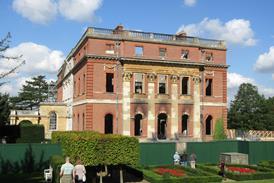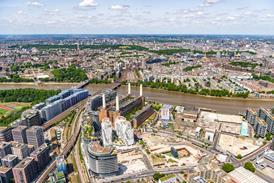- Home
 Georgian Group granted permission to pursue judicial review into decision to approve Allies and Morrison’s Clandon Park plans
Georgian Group granted permission to pursue judicial review into decision to approve Allies and Morrison’s Clandon Park plans Studio Egret West to masterplan remainder of Battersea Power Station development
Studio Egret West to masterplan remainder of Battersea Power Station development McAslan delays plans for new office in Riyadh amid Saudi slowdown
McAslan delays plans for new office in Riyadh amid Saudi slowdown Why architects should take a fresh look at London’s livery companies
Why architects should take a fresh look at London’s livery companies
- Intelligence for Architects
- Subscribe
- Jobs
- Events

Events calendar Explore now 
Keep up to date
Find out more
- Programmes
- CPD
- More from navigation items
Architects remain positive despite rising cost pressures

RIBA survey finds 31% of practices expect workloads to increase, though last year’s upwards trend has slowed
Architects remain positive about future workloads over the coming three months despite a flattening of the optimistic trend seen at the end of last year.
RIBA’s Future Trends survey for January found 31% of practices expect workloads to increase, while 55% expect them to stay the same and just 13% foresee a decrease. It found that all practice sizes are confident about future workloads.
But with the survey returning the same index for workload expectations as December, +18, it shows that the surge in optimism seen before Christmas has slowed.
…
This content is available to registered users | Already registered?Login here
You are not currently logged in.
To continue reading this story, sign up for free guest access
Existing Subscriber? LOGIN
REGISTER for free access on selected stories and sign up for email alerts. You get:
- Up to the minute architecture news from around the UK
- Breaking, daily and weekly e-newsletters
Subscribe to Building Design and you will benefit from:

- Unlimited news
- Reviews of the latest buildings from all corners of the world
- Technical studies
- Full access to all our online archives
- PLUS you will receive a digital copy of WA100 worth over £45
Subscribe now for unlimited access.


